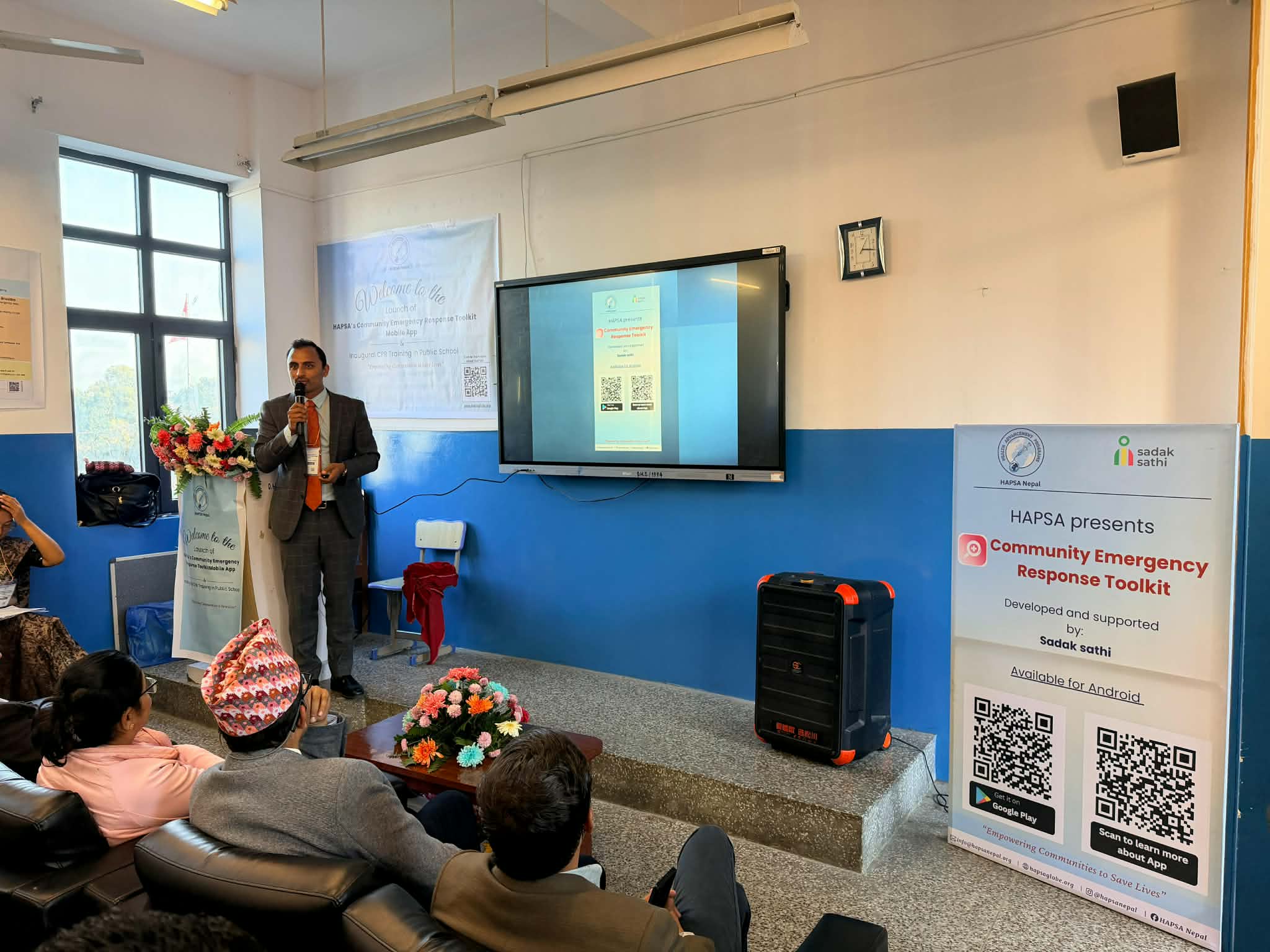HAPSA Nepal launched its Community Emergency Response Toolkit (CERT) mobile application on Thursday at Durbar High School, Rani Pokhari, Kathmandu.
It also provided cardiopulmonary resuscitation (CPR) and choking first aid training to the school’s teachers and students for the first time.
According to HAPSA Nepal, this marks a major advancement in building community-level emergency preparedness in Nepal’s schools and neighborhoods.
Developed by HAPSA Nepal with technical support from Sadak Saathi, CERT offers simple, practical emergency and trauma care videos in Nepali. The content includes guidance on choking first aid, bleeding control, burns, fractures, poisoning, cardiac arrest, and more.
According to HAPSA Nepal, all videos were originally produced by Global Health Media Project, with content expertise from HAPSA’s founder Dr Ramu Kharel and other international emergency care specialists. HAPSA Nepal translated and adapted the materials to ensure usability across both rural and urban settings.
HAPSA (Health Advancement Programs to Serve All) Nepal is a nonprofit organization dedicated to advancing equitable emergency care across rural Nepal.
“Empowering communities to act quickly and confidently in emergencies is essential to building a safety net for Nepal,” said Dr Kharel, founder of HAPSA Nepal and assistant professor of emergency medicine at Brown University in the United States. “HAPSA has been working to advance community-focused healthcare since 2013. Our vision is to integrate essential lifesaving skills into the national curriculum so every Nepali student grows up prepared to respond in an emergency.”
Following the launch, 40 teachers and students took part in hands-on CPR and choking first aid sessions.
“After cardiac arrest or a choking event, quick action saves lives. We’ve been training police and other responders across Nepal, and now we will work with schools as well,” said Dr Kamal Thapa, emergency medicine physician and executive lead of HAPSA Nepal’s CPR Program, who led the training program on Thursday.
From a trauma care perspective, “stabilizing fractures, controlling bleeding, and safely moving trauma victims can save lives. These videos teach non–health care workers how to help before victims reach the hospital,” said Dr Mandeep Pathak, orthopedic surgeon at Bayalpata Hospital and HAPSA’s executive lead for Rural Trauma Programs.
Representing Sadak Saathi, Nipuna Neupane added, “Supporting the development of CERT aligns with our mission to use technology to solve real-world problems. This app brings lifesaving knowledge directly into people’s hands.”
Sadak Sathi is a youth-led movement working to make Nepal’s roads and communities safer through technology, education, and innovation.
The event was attended by teachers, Nepal police, Armed Police Force, representatives from the Ministry of Education and Technology, Ministry of Health and Population, and other relevant
organizations.

